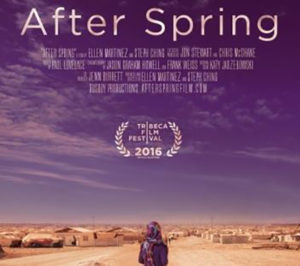Film a tool for promoting understanding of migrants, refugees
Films can foster empathy for migrants, create better understanding of their plight and bring diverse communities together, according to new research.
Coming amidst a blizzard of misinformation about migration triggered by the COVID-19 pandemic, the research suggests films can have positive results on perceptions of migration and refugees.
 Anecdotally, films have been at the forefront of combatting xenophobia and promoting balanced narratives on migration with its decades-long advocacy and global operational footprint.
Anecdotally, films have been at the forefront of combatting xenophobia and promoting balanced narratives on migration with its decades-long advocacy and global operational footprint.
Butt, with the rise of the COVID-19 pandemic, migrants have become more exposed to risk of stigmatisation and discrimination.
But a new research pilot project has looked at the effect of the International Organisation for Migration’s (IOM) Global Migration Film Festival (GMFF) shows film can promote more positive narratives.
The study is evaluating how films and public film screenings influence public perceptions towards migrants and the public’s understanding of migration.
Based on the data from over 4,000 respondents in over 40 countries, the study found that participation in a film event positively influences perception of migrants.
“While the mostly young, highly educated, and urban audience were already supportive towards migrants prior to the event, the positive views about migration increased even more – by some 11 per cent, according to surveys conducted with audiences – after watching the films,” the researchers said.
“The data reveal certain tendencies – for example, that positive changes appear to be more pronounced for women, non-migrants and those that do not know migrants personally – when migrants’ stories are dramatized on film,” they said.
 “A similar effect was noticeable on attitudes towards diversity. Regarding general attitudes, 58 per cent of participants surveyed, both men and women, reported that immigrants enrich society; 50 per cent said that migrants can be trusted.
“A similar effect was noticeable on attitudes towards diversity. Regarding general attitudes, 58 per cent of participants surveyed, both men and women, reported that immigrants enrich society; 50 per cent said that migrants can be trusted.
“Survey results further suggest that migrant respondents and those who personally know migrants are more likely to agree with the statement that migrants enrich the country’s cultural life,” the researchers said.
With the overwhelmingly positive feedback towards film events, the pilot study suggests they are powerful advocacy tools to bring attention to social issues, counter misinformation, and create a platform for meaningful interaction.
“In short, this pilot study indicates that films have the immense potential to influence perceptions of and attitudes towards migrants, and as such, they could be fit for the purpose of combatting COVID-19 related hate speech and xenophobia,” the researchers said.
They said cultural tools such as films are critical to inform, entertain and provoke healthy debates and discourses on various social issues, such as migration.












